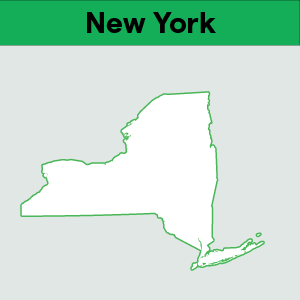California pursuing Amazon sellers for income tax
by November 12, 2024
A number of Amazon sellers have reported receiving a notice from the state of California inquiring about their franchise tax (i.e. California state income tax) status. These notices are just the latest development in the friction between the state of California and the e-commerce giant over who is responsible for paying various California state taxes.
The “Demand for Tax Return” Notice
The California Franchise Tax Board (CFTB) sent a notice to Amazon sellers beginning in late October 2020.
Because businesses located in California are already liable for California franchise tax, the notice appears to have been sent out to Amazon sellers located outside of the state.
Who owes California income tax?
According to the state of California, having property in the state – such as inventory in an Amazon fulfillment center – can trigger income tax nexus in the state. For the purposes of state law, California considers inventory in the state to mean “doing business in the state of California.”
Any Amazon seller or business who, according to the state of California, is “doing business in the state” is subject to at least the state’s minimum $800 annual franchise tax fee.
However, California does have set minimums for who is considered “doing business in the state.” For 2018, the year of this notice, these thresholds were:
- California sales exceeding $601,967
- California property (i.e. inventory in an Amazon fulfillment center) exceeding $58,387
- California payroll compensation exceeding $58,387
It appears that, when it comes to Amazon sellers, California is aware of the presence of inventory in Amazon Fulfillment Centers and are invoking #2 – property exceeding a $58,387 value in the state.
What does California’s franchise tax notice mean for Amazon sellers?
According to Peter Baisch, Senior Manager of State and Local Tax at accounting firm Cherry Bekaert, this means that the state of California is now pursuing individual Amazon sellers for state income tax.
This is hardly a surprise. California has perennially been the most aggressive state when it comes to pursuing Amazon sellers for both sales tax and income tax. A 2018 court order required that Amazon provide personal information of Amazon sellers with inventory stored in California. And though Amazon now collects California sales tax on behalf of Amazon sellers, it appears that the state isn’t finished finding creative ways to squeeze tax money out of e-commerce sellers.
Baisch warned that other states might follow in California’s footstep, “given that many state have budget deficits in light of COVID,” and due to the “perception that e-commerce in general has done well during this time of economic downturn.”
How can Amazon sellers protect themselves going forward?
According to Baisch, it’s vital that Amazon sellers make a plan for handling state-level income tax.
Baisch advises pulling an Inventory Event Detail Report from Amazon monthly. Having this information will help to prove to states where inventory is housed and provide evidence if erroneously asked to file income tax.
He noted that some Amazon sellers choose to comply in states, such as California, where they store they make the most sales. However, other sellers have decided to withdraw from the Amazon FBA program altogether rather than continue to face the uncertainty of new tax bills from new states.
Last but not least, Baisch and the team here at TaxJar, advise you to contact your congresspeople. Only with national legislation to protect small businesses will Amazon and other e-commerce sellers be protected from tax consequences in multiple states.
I received a California franchise tax notice. What should I do?
If you have received this notice, we recommend immediately speaking with an e-commerce accounting expert. Accounting firm Cherry Bekaert has a program in place to assist Amazon sellers with this notice. Otherwise, we recommend contacting an accountant who has experience in California income tax or multi-state income tax. Keep in mind that income tax and sales tax are quite different, so the provider that you use for sales tax might not be as familiar with income tax.
It’s also important to note that this notice concerns tax year 2018. We highly recommend settling this matter now, for both tax years 2018 and 2019, in order to avoid another notice and, potentially, a new set of 2019 fines and penalties in the future.
Also, Cherry Bekaert has been in touch with the state of California and asked for clarification on their position. We will update this post when we learn more.
Ready to automate sales tax? To learn more about TaxJar and get started, visit TaxJar.com/how-it-works.







